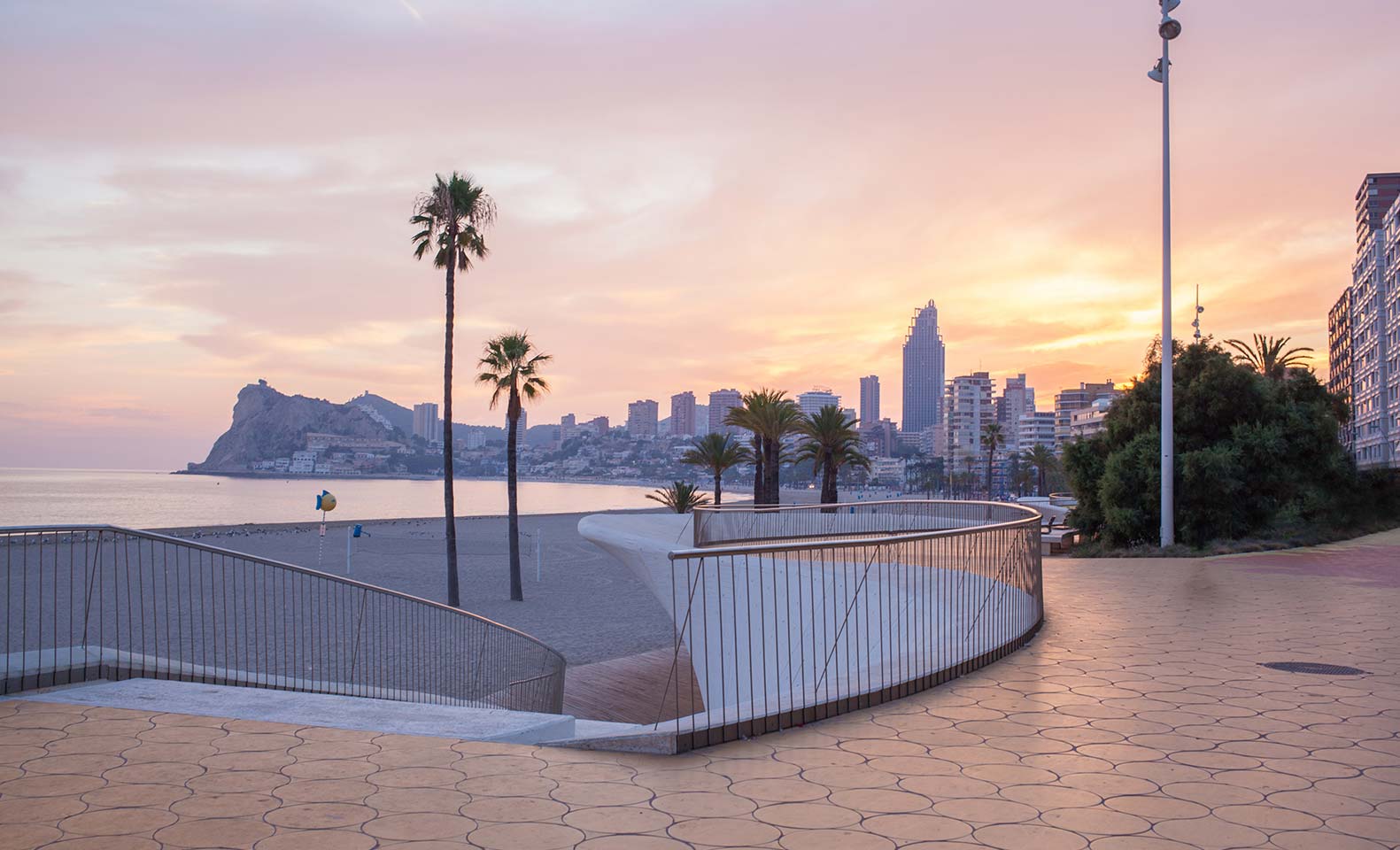If you prefer to always view the website in English, please click here.
Even though we may not spend much time there, our second residence should always be ready to enjoy on holidays or weekends, without any complications.
That is why it is very important to take into account some important details so that this little luxury does not become a great waste of money.
On the coast, in the mountains, in the village... a holiday home is, in principle, a house like any other. However, there are notable differences in the way we use them, starting with the time we spend in them.
A coastal house that you only go to on holiday and short getaways (usually summer and bank holiday weekends) is not the same as a house that is closer by and that you go to every weekend.
Our way of "enjoying the house" is important but there are other factors that also have an influence, such as its size, whether it is in more climatically exposed areas such as near the sea or in the mountains, if it is an apartment surrounded by other flats or a villa with several facades and a roof... everything has an influence on the challenge of minimising consumption to make it as efficient as possible
Let's take a look at it in steps.
Calculate the power you require
A common mistake with holiday homes is the one caused by the misconception that "since we are going to be there for a short time", and the contracted power is a fixed expense, we will sign up for a lower power to save a few euros.
The problem occurs when we are there, we consume electricity normally and the fuses blow. When there is not enough electricity for everything, the power cuts are a serious inconvenience.
How can we avoid this?
By taking out the amount of power you need, no more and no less.
It's not a question of adding up the power of all the appliances because it is very unlikely that we will put them all on at the same time. But you do have to take into account, for example, that putting on a washing machine and making something to eat in the oven at the same time can be a frequent occurrence. And while this is happening, the fridge is still working and the TV is on.
It all adds up.
It is therefore necessary to find a balance and, if anything, go slightly high. It is better to lower the power, which is free, than to have to ask to raise it, which does have a cost.
Let's see what happens to the variable part, the kWh we consume.
Get the most appropriate tariff
Another common mistake is to think that since we are not there very much, it's not worth thinking about it too much and we settle for a standard tariff when it is very likely that, by devoting only a few minutes to comparing, we will find some very interesting savings possibilities.
In second residences we have different habits that are often more constant, clear and differentiated. With shorter stays in the house and often concentrated in the same hourly stretch.
For example, it is normal to go to a coastal residence in summer, spend most of the day outside, on the beach or by the pool, and go back at night. That's when we'll use air conditioning and other high-consumption appliances like washing machines and ovens.
In cases like this, having a tariff with time slots that lowers spending at the times we use a large amount of power is very convenient.
We also have to take into account that the electricity consumption of the second residence is more predictable, changing less over time. We will have peak months... but most are "off-peak" with hardly any expense. This stability can make it interesting to look at a tariff that is much more than a flat rate, such as Endesa's Única, with a personalised fixed rate and no consumption limit.
And keep in mind a few simple tips
Although holiday homes are for relaxing in, it is advisable to give them a good check from time to time. Only then will you realise what you have to tweak, improve or change to avoid unnecessary expenses.
- Make sure the house is well sealed
If you notice a draft, look for where it comes from and fix it right away. Your wallet will thank you for replacing window weatherstripping, sealing the gaps in blind boxes, around pipes, recessed lights, etc. In a well-insulated house the heat stays outside.
- Use awnings in summer and curtains in winter
They are your best allies to prevent the sun and heat from entering the house in summer and so that it does not escape from it in winter.
- Change the air conditioning filters.
Clogged or dirty air filters not only agitate allergies and worsen air quality, they also reduce the efficiency of equipment by forcing them to work harder.
In an inhabited house it is recommended to change the filters every three months. In a second residence it will mainly depend on the time it is occupied, but do not forget to do it regularly.
- Swap old bulbs for efficient lighting
If you still have incandescent bulbs in your holiday home, make a small investment and replace them with LEDs or other energy-efficient light bulbs. You will save up to 80% of energy in lighting and you will definitely make your money back, since they last up to 25 times longer than incandescent ones.
- Update your household appliances
Bringing an old refrigerator to your holiday home (or keeping the one that's always been there) is not a good idea: it is the appliance that consumes the most energy. Invest in an energy-efficient one and you will notice how your bill is significantly lowered.
- Turn off the thermostat (and turn it on for a while before using it)
If you only use the hot water when you get up or when you return from the beach or pool, turn it on a while before and turn it off afterwards. You can save up to 25% of your electricity consumption.
- And before you leave, always remember to take one last look and unplug the appliances. If you do not need to leave anything connected, the easiest thing is to go to the electrical panel and disconnect the electricity altogether.
This way you ensure a zero consumption.
{{content.phone.title}}
{{content.phone.text}}
{{content.phone.phoneText}}
{{content.form.title}}
{{content.form.text}}
{{content.form.success.title}}
Take a minute to find the product that best suits you:
{{firstStep.title}}
Take a minute to find the product that best suits you:
{{title}}
{{content.phone.title}}
{{content.phone.text}}
{{content.phone.phoneText}}
{{content.form.title}}
{{content.form.text}}
{{content.form.success.title}}
You don't need to adapt to Endesa's tariffs because they adapt to you. If you go to our catalogue you can compare the different tariffs for yourself. Or if you prefer, you can answer a few questions and we will take care of comparing all the different electricity and gas tariffs and then make a customised recommendation.
Take a minute to find the product that best suits you:
{{title}}
{{content.phone.title}}
{{content.phone.text}}
{{content.phone.phoneText}}
{{content.form.title}}
{{content.form.text}}
{{content.form.success.title}}
You don't need to adapt to Endesa's tariffs because they adapt to you. If you go to our catalogue you can compare the different tariffs for yourself. Or if you prefer, you can answer a few questions and we will take care of comparing all the different electricity and gas tariffs and then make a customised recommendation.
Comparison of Electricity and Gas Tariffs
You don't need to adapt to Endesa's tariffs because they adapt to you. If you go to our catalogue you can compare the different tariffs for yourself. Or if you prefer, you can answer a few questions and we will take care of comparing all the different electricity and gas tariffs and then make a customised recommendation.
Spend a minute to find the product which best adapts to you:
{{firstStep.title}}
Spend a minute to find the product which best adapts to you:
{{title}}
Spend a minute to find the product which best adapts to you:






